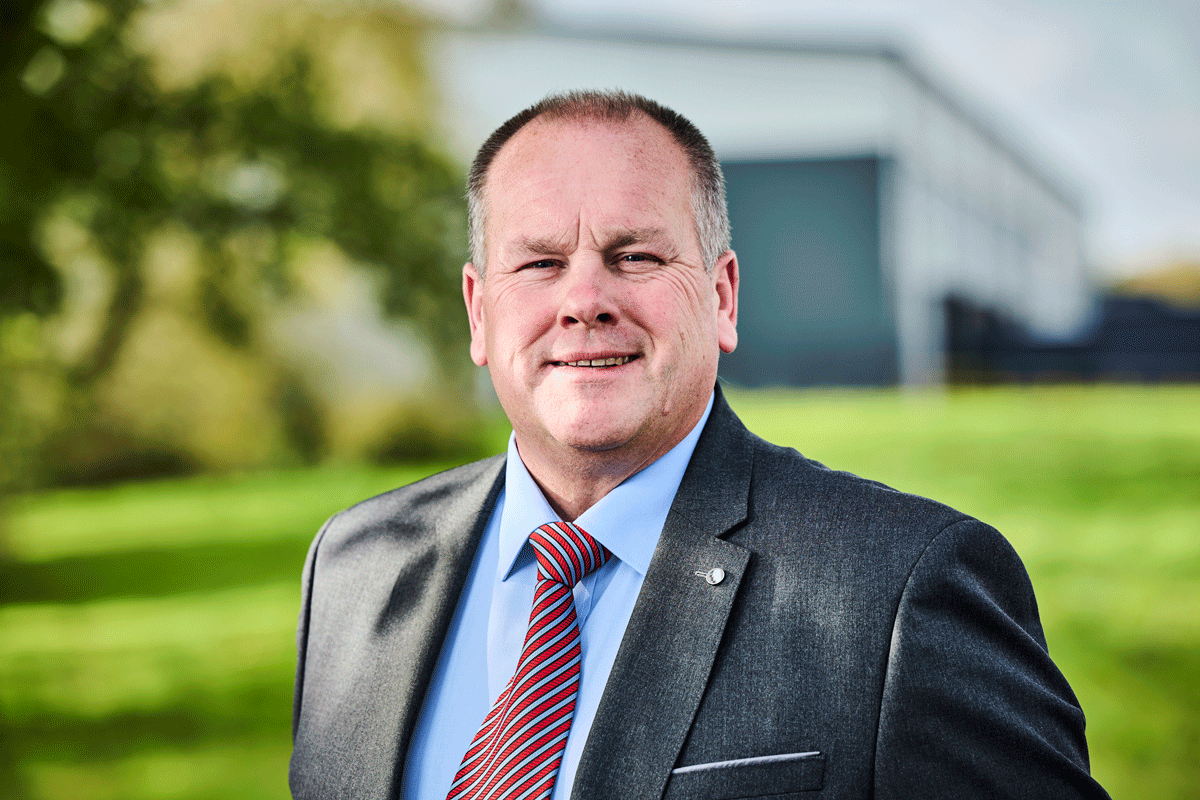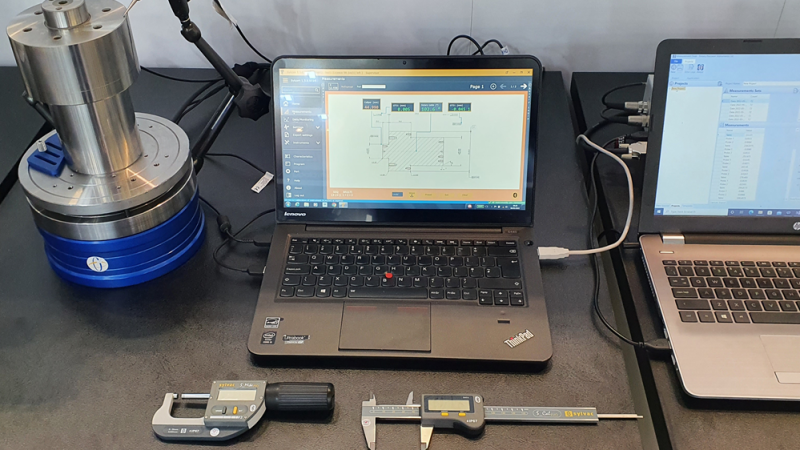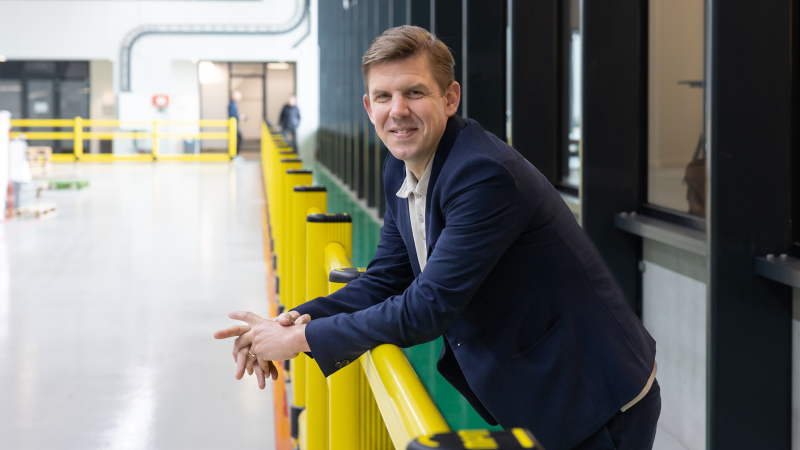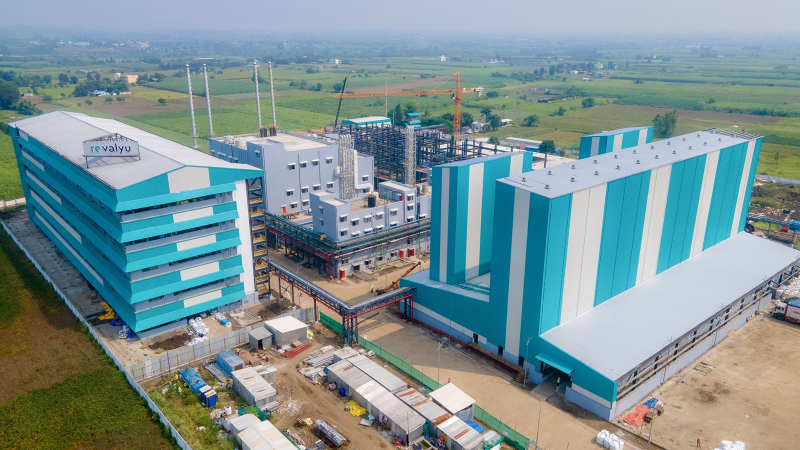Bruderer manufactures and builds high-speed, precision stamping machines for all kinds of industries. Its machines are used to create products for all industries, from the medical to the automotive sectors, from electronics to the food industry. The odds are that at some point today you touched a product whose components have been in a Bruderer machine.
“It leads us to lots of different projects and with that come all sorts of different enquiries where we have to bring customers solutions for components new and old,” says Adrian Haller, Managing Director at Bruderer UK. “What we find in our industry is that due to the lack of skills and the more intense relationships businesses seek out with their suppliers, what we offer now is a full turnkey solution, from the ground up. It empowers us to build the machine itself, the tooling, the guarding, ensure it is conforming to all relevant standards and deliver it to the customer who will press the button and make the parts they need.”
The company sells itself with a multi-pronged attack. It offers high-speed production coupled with high levels of precision. It has been validated to provide products to industries that demand the highest standards, and with good reason.
“To serve industries such as the medical industry, validation can take up to two years,” Haller points out. “We can go through these processes and meet all customer and regulatory requirements. We pride ourselves on being professional within the manufacturing sector, for metal components, plastic components and more, applying that knowledge to any part of the manufacturing sector.”
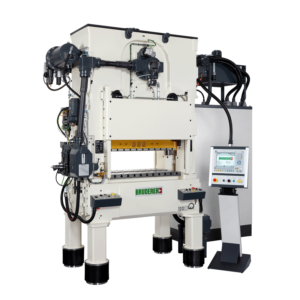 A Manufacturing Explosion
A Manufacturing Explosion
In Haller’s view, the manufacturing sector in the UK is the most exciting place to be right now.
“Nobody has a crystal ball, but you can see a manufacturing boom is happening,” he insists. “There are a lot of factors around that, but one of them is that Covid demonstrated very acutely that the UK has no supply chain close to home. It shone a very bright light on what the UK can and cannot do for itself.”
Haller argues that companies are starting to invest in the UK, both the companies already here and the international companies that have seen the potential of the nation’s manufacturing economy. It is a good news story, although one that has not received as much widespread media coverage as it might have.
“People say Britain doesn’t make things anymore, but we make a lot of stuff,” Haller says. “Not the cheap stuff, but where there needs to be a lot of thought and a lot of technical ability, British manufacturing has the know-how and technology to bring it to fruition. We have gone from strength to strength.”
Haller points to Bruderer’s own project portfolio as powerful evidence of just that.
“The roots of these projects are embedded in the UK economy. We cannot but make them in the UK, so those products are staying here,” he says. “The onset of EV technology has helped with the boom for battery manufacturing, while the boom in housing construction is encouraging manufacturing there. The electronics sector, as we all know, has had semiconductor supply chain issues, but now that sector is racing to meet demand.”
It is an industrial boom that Haller wants to put at the heart of the country – literally. Bruderer has moved its head office from Luton to Shropshire, close to the heart of manufacturing and engineering in the UK.
“86% of Bruderer is Midland based. So, we are doing this from an efficiency perspective, and a sustainability perspective, so we do not keep running cars up and down the motorway,” he says. “The future needs to be in the Midlands. It is the heart of the industrial revolution; it is the middle of the country.”
Bruderer’s own heavy investment in the UK as a Swiss company is a vote of confidence in the industry. Bruderer has been present here for 55 years, and that is because of the British manufacturing sector.
“If the business was not there in the UK we would not be investing,” Haller says. “We have stood on our own two feet in the UK for 55 years. The owner would not have us here if we did not make money. It makes us proud that the UK manufacturing sector is doing as well as it is. We are seeing work come back from China, driven by the push for sustainability. What is the sense of sending aeroplanes back and forth across the world when it can be made here on our own soil?”
But for the country to truly make the most of that boom, it needs skills, and that is Bruderer’s next priority.
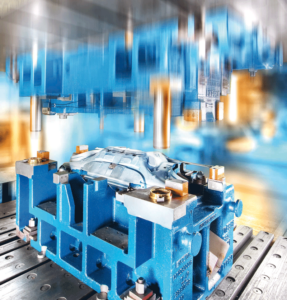 People Power
People Power
While industries are growing, that very growth is putting pressure on what is currently the UK’s very finite skill pool.
“There are not many skills around at the moment and the training schools are working very hard to develop our future through schemes such as apprenticeships, but there is a massive hole in the middle from the period when this country did not invest in training,” Haller says. “The big conglomerates are now paying excellent money to get engineers on site. We get around the problem by making sure our staff are paid well, and that the environment they work in is comfortable, so work is more pleasure than chore.”
The company’s move to Telford is part of creating that environment, including its brand-new plant with 40,000 square feet of showroom, a new rebuilding area, boardrooms, and canteen facilities.
“It has everything to help our people be more comfortable in the working environment while bringing in new people via apprenticeship schemes and working closely with companies to breed our own skilled people,” Haller says. “We will take on several apprentices a year through our training program, not just for Bruderer but to build a wealth of knowledge that will grow the UK industry’s pool of skilled engineers.”
That forward-looking, industry-wide approach will continue to be at the heart of Bruderer’s strategy in the UK.
“We are going to be working with more partners to provide machine tools and full turnkey solution lines,” Haller says. “Our five-year plan is to take on at least six more people within Bruderer UK in the electronics and mechanical engineering fields. We want to build to a point where we can increase the lines, we put out to market, providing a greater range of machine tools supported by even higher levels of service.”
